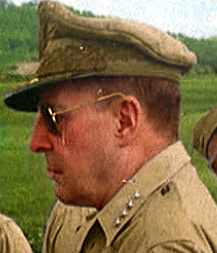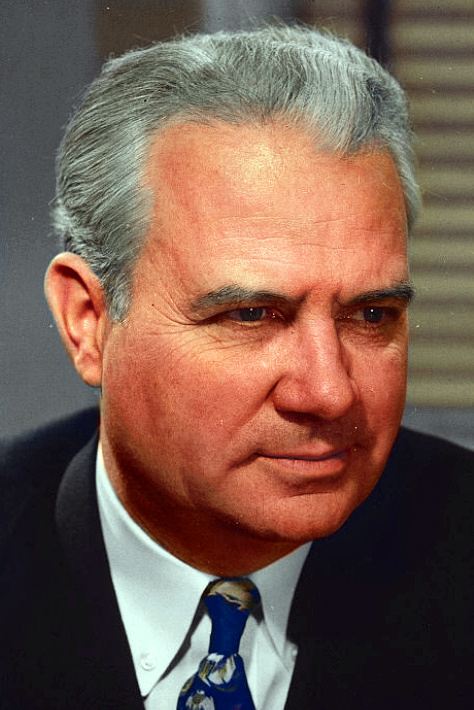The Pittsburgh Press (January 27, 1944)

Gen. MacArthur: Soldier-President can shorten war
But private advices from the South Pacific picture general as very willing to let events take course
By Lyle C. Wilson, United Press staff writer

Gen. MacArthur
Washington –
A recent visitor to Gen. Douglas MacArthur’s headquarters in the Southwest Pacific has sent me a report on political sentiment in that outpost which will be of unusual interest to Americans who have been wondering whether the general will be a candidate for President.
The summary is by an experienced observer, and those who are interested in the MacArthur boom undoubtedly will be impressed by the fact that it was passed through the general’s own military censorship.
**Probably the most striking part of this report is the suggestion that Gen. MacArthur believes an experienced soldier in the White House would bring an earlier victory in the war.
The report says at one point:
It would not be surprising if Gen. MacArthur felt – as do a good many here – that the shortest way to victory would be to place an experienced military man in the White House.
The report reflects the impression at his headquarters that Gen. MacArthur will neither declare his availability for the Republican nomination nor withdraw his name from consideration, preferring to “let events take their course.” It is emphasized that he is not taking any time out from war for politics, but that no one should assume this to mean that he would not be receptive to the presidential nomination.
The report continues:
Even if he were nominated, sources here believe it entirely possible that Gen. MacArthur would not leave his post to campaign. Talking to MacArthur supporters of whom there are many here, I get the impression they foresee the possibilities about this way:
MacArthur will maintain complete silence on political matters pending the Republican National Convention, but his supporters will go into the convention with a fair bloc of votes from the Midwest. One figure mentioned is 125 delegates. This presumably would place his third behind Governor Thomas E. Dewey and Wendell L. Willkie. They believe Dewey and Willkie are likely to deadlock whereupon MacArthur might emerge as a compromise candidate since he likely to have considerable second choice strength among both Dewey and Willkie supporters.
If nominated, it is believed MacArthur might accept by cable, explaining that his job of beating the Japs was too important to permit him to campaign. The campaign would be the responsibility of party leaders at home with the general-tossing in an occasional radio speech or public statement.
The report continues that in “some quarters here” there is a suggestion that Gen. MacArthur might be nominated for vice president on a ticket headed by Mr. Dewey.
According to this report:
But it is felt that the general probably would not be receptive to such suggestions and would scorn any pre-convention deal with Dewey, Willkie or any other candidate.
But whether he actually would refuse the vice presidency should the convention offer it is entirely unknown. Such a ticket might be as attractive as anything the Republicans could offer, especially if the presidential nominee announced that he planned to let MacArthur handle the job of winning the war.
MacArthur backer charges favoritism
Milwaukee, Wisconsin (UP) –
Lansing Hoyt, state chairman of the MacArthur-for-President club, today accused the national administration of discriminating against Republicans because of a ruling that Lt. Col. Philip F. La Follette could not run as a GOP convention delegate candidate pledged to Gen. MacArthur.
Maj. Gen. J. A. Ulio, Adjutant General of the Army, informed Hoyt of Col. La Follette’s standing. He had asked whether servicemen could run as delegate candidates for the national party conventions.
Gen. Ulio said:
The War Department cannot permit a member of the Army on active duty to participate in the convention of a political party.
Col. La Follette is serving on Gen. MacArthur’s staff in the Southwest Pacific.
Mr. Hoyt said he could see no difference between running for delegate or for President and pointed out that the War Department had consented to the naming of an Army man as a presidential candidate.

